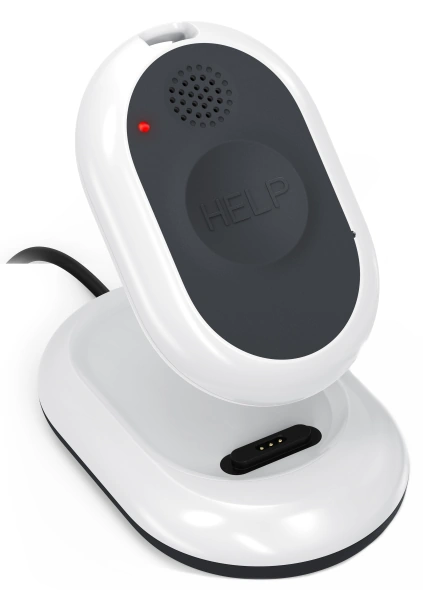Effective Strategies For Managing Diabetes And Living Well Every Day
Managing diabetes becomes increasingly crucial as we age. Consistent blood sugar control helps reduce complications, boost energy, and support a more active lifestyle. The right daily habits make a major difference, especially when tailored to changing health needs.
Seniors can manage their diabetes effectively by incorporating smart food choices, regular physical activity, stress management techniques, and consistent medication routines into their daily lives. With guidance from healthcare professionals and a commitment to healthy routines, managing diabetes can lead to greater comfort, mobility, and overall quality of life.
All About Diabetes In Seniors
Diabetes affects how the body processes blood sugar and is especially common among seniors in the United States. As people age, they may become more insulin-resistant or produce less insulin, making blood sugar control more difficult. Type 2 diabetes is the most common form in older adults, but managing it comes with unique challenges.
Vision changes, reduced mobility, and memory issues can all interfere with daily diabetes care. Seniors may also face multiple chronic conditions that complicate treatment. That’s why consistent monitoring and proactive management are necessary. Routine testing, a balanced routine, and regular communication with healthcare providers all help keep your symptoms under control.
Lifestyle Modifications For Diabetes Management

Managing diabetes involves more than just medication. Healthy daily habits can significantly improve blood sugar control and reduce the risk of complications. For seniors, these changes can boost energy, mood, and mobility. Two of the most effective strategies include proper nutrition and consistent movement.
Healthy Eating Habits
A balanced diet helps stabilize your blood sugar and prevent spikes or crashes. Focus on foods that offer steady energy and essential nutrients.
-
Choose whole grains over refined carbohydrates
-
Include lean proteins like chicken, fish, or legumes
-
Eat plenty of vegetables, especially leafy greens
-
Limit sugary snacks and sweetened beverages
-
Watch portion sizes and avoid overeating
-
Space meals evenly throughout the day
Regular Physical Activity
Exercise improves insulin sensitivity and helps regulate blood sugar levels. You don’t need to overdo it. Gentle, consistent movement is often most effective for seniors.
-
Walk for 20–30 minutes each day
-
Try swimming or water aerobics to reduce joint strain
-
Do seated yoga or stretching routines for flexibility
-
Use light hand weights to maintain muscle tone
-
Wear comfortable shoes and stay hydrated
These lifestyle changes help seniors like you manage diabetes with confidence and support daily independence.
Monitoring And Medication Management
Staying on top of blood sugar levels and medications is a cornerstone of managing diabetes. You want to establish routines around testing and treatment to make your daily life more predictable and reduce the risk of serious complications. These two areas work hand in hand.
Regular Blood Sugar Monitoring
Checking blood sugar regularly helps you learn how food, exercise, and medication affect your body. This insight makes it easier to prevent highs and lows.
-
Use a glucose meter or continuous glucose monitor (CGM) as advised
-
Keep a written or digital log of readings
-
Test at consistent times each day, such as before meals or bedtime
-
Know your target range and what steps to take when numbers are off
Medication Adherence
Consistently taking your medications as prescribed is just as crucial as healthy eating or exercise. Skipping doses or incorrect use can lead to dangerous fluctuations.
-
Use a pill organizer or automated dispenser
-
Set daily alarms or use smartphone reminders
-
Refill prescriptions early to avoid missed doses
-
Watch for side effects like dizziness or nausea, and consult your provider if they persist
You can stay healthier and feel more in control of your condition by making these steps part of your routine.
Managing Stress And Mental Health

Emotional stress and well-being have a direct effect on blood sugar levels. Stress can lead to spikes or drops that make it harder for a senior managing diabetes to stay balanced. Build mental health support into your routine to improve your mood and physical health.
Try these stress-reducing techniques:
-
Practice deep breathing or gentle meditation to calm your mind
-
Take regular walks or stretch outdoors to boost endorphins
-
Write in a journal to release worries and track progress
-
Stay socially connected through phone calls, group activities, or volunteering
If sadness, anxiety, or isolation persist, talk to a doctor or mental health professional. Support groups and telehealth therapy options can make care accessible. Prioritizing your mental health helps you stay more engaged in all aspects of diabetes care.
Regular Health Check-Ups
Routine visits to your healthcare provider are a cornerstone of managing diabetes. These check-ups help catch issues early, track progress, and adjust your care plan as needed. Be sure to schedule consistent appointments, even if you feel well.
Essential diabetes-related screenings include:
-
A1C tests to monitor long-term blood sugar control
-
Foot exams to catch nerve damage or poor circulation early
-
Eye exams to screen for diabetic retinopathy
-
Kidney function tests to check for complications
Talk to your provider about how often you need each screening based on your personal health history. Bringing a list of questions and tracking your symptoms can make appointments more productive.
Having a trusted care team, including your primary doctor, eye specialist, foot care provider, and dietitian, gives you the support needed to manage diabetes with confidence and clarity.
Conclusion
Managing diabetes takes consistency, support, and a willingness to adjust as your needs change. Daily strategies, such as regular check-ups, stress management, and safe physical activity, provide long-term benefits for blood sugar control and overall wellness. With the help of a dedicated healthcare team and a few simple tools, you can build routines that work for your body and lifestyle. Taking charge of diabetes today helps you enjoy greater freedom, fewer complications, and a stronger foundation for staying independent and well every day.























